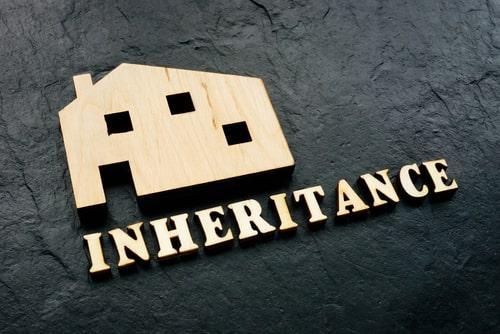630-462-9500
After Hour New Client Telephone Number 630-690-6077
1776 S. Naperville Road, Building B, Suite 202,
Wheaton, IL 60189
Understanding How Illinois Treats Inherited Property in a Divorce
 Divorce can be a complicated and emotionally charged process, and property division is often one of the most contentious issues. In Illinois, inherited property is generally considered separate property and not subject to division in a divorce settlement. However, some exceptions to this rule can make things more complicated. Today, we are going to discuss everything you need to know regarding inherited property in Illinois divorce settlements. If you are getting a divorce, it is in your best interest to hire a skillful divorce attorney to help ensure your rights are protected, and a favorable case outcome can be pursued.
Divorce can be a complicated and emotionally charged process, and property division is often one of the most contentious issues. In Illinois, inherited property is generally considered separate property and not subject to division in a divorce settlement. However, some exceptions to this rule can make things more complicated. Today, we are going to discuss everything you need to know regarding inherited property in Illinois divorce settlements. If you are getting a divorce, it is in your best interest to hire a skillful divorce attorney to help ensure your rights are protected, and a favorable case outcome can be pursued.
Important Considerations for Inherited Property in Illinois Divorce
As stated previously, when a person inherits property, cash, or similar assets, it is usually considered their separate property, which makes it exempt from division during divorce proceedings. However, in certain situations, inherited property may lose its status as separate property and become subject to division.
One situation where inherited property may lose its status as separate is when it is commingled with marital property. For example, suppose a spouse inherits money and deposits it into a joint bank account with their spouse. In that case, it may lose its status as separate property and become subject to division in a divorce. Another situation where inherited property may lose its status as separate property is when it is used to benefit the marriage in some way. For instance, if a spouse uses inherited funds to pay for the mortgage, the money invested into the home has lost its separate identity.
What if Inherited Property Increased in Value During the Marriage?
As long as an inheritance is kept separate from marital assets, it will usually be considered separate property, even if it has increased in value. However, if the increase in value was due to contributions from the other spouse, that increase may be considered marital property. For example, if a person inherited a house and their spouse made some improvements to it, the value increase would likely be considered marital property.
Contact a Wheaton Divorce Attorney
Property division can be difficult, especially when there are disputes about which property belongs to whom. If you are getting a divorce, contact the knowledgeable DuPage County divorce lawyers with The Stogsdill Law Firm, P.C. to help with all your divorce and property division needs. Call 630-462-9500 for a private consultation.
Source:
https://www.ilga.gov/legislation/ilcs/documents/075000050k503.htm




















